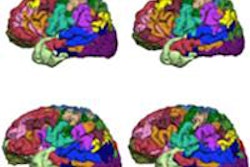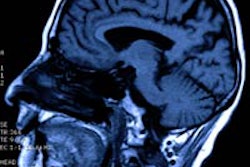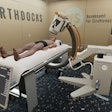If you think it is all in your head when you are anxious and make a mistake, you're right.
In a new study published online on 20 January in Scientific Reports, U.K. neuroscientists used functional MRI (fMRI) to identify the area of the brain that causes us to stumble, stall, and perhaps fail when we are stressed.
The team from the University of Sussex's Sackler Center and Brighton and Sussex Medical School monitored subjects' brain activity while carrying out a task that required them to exert a precise amount of force when gripping an object.
During the test, participants viewed video of two people whom they believed were evaluating their performance. The task then was repeated while viewing video of two people who appeared to be evaluating the performance of someone else.
Subjects said they felt more anxious when they believed they were being watched and gripped the object harder without realizing they were doing it.
The fMRI showed the inferior parietal cortex, which controls fine sensorimotor functions, became deactivated when people felt they were being observed.
The inferior parietal cortex also works with the posterior superior temporal sulcus to form the action-observation network. This network, in turn, is involved in processes by which we infer what another person is thinking, based on his or her facial expressions and direction of gaze.
The posterior superior temporal sulcus then sends this information to the inferior parietal cortex, which generates appropriate motor actions.
More specifically, if we feel our observer wants us to do well, we will perform well, researchers concluded. However, if we pick up negative vibes, the inferior parietal cortex is deactivated and our performance suffers.



















